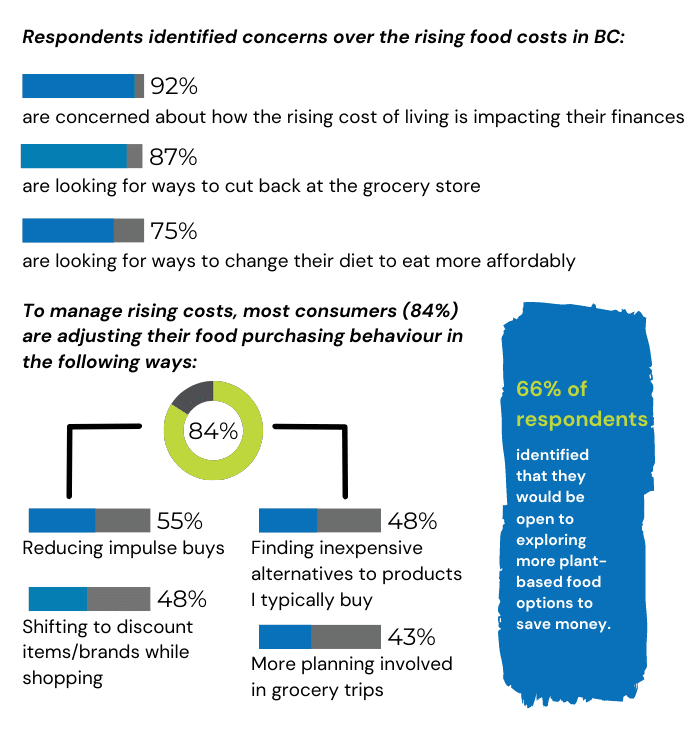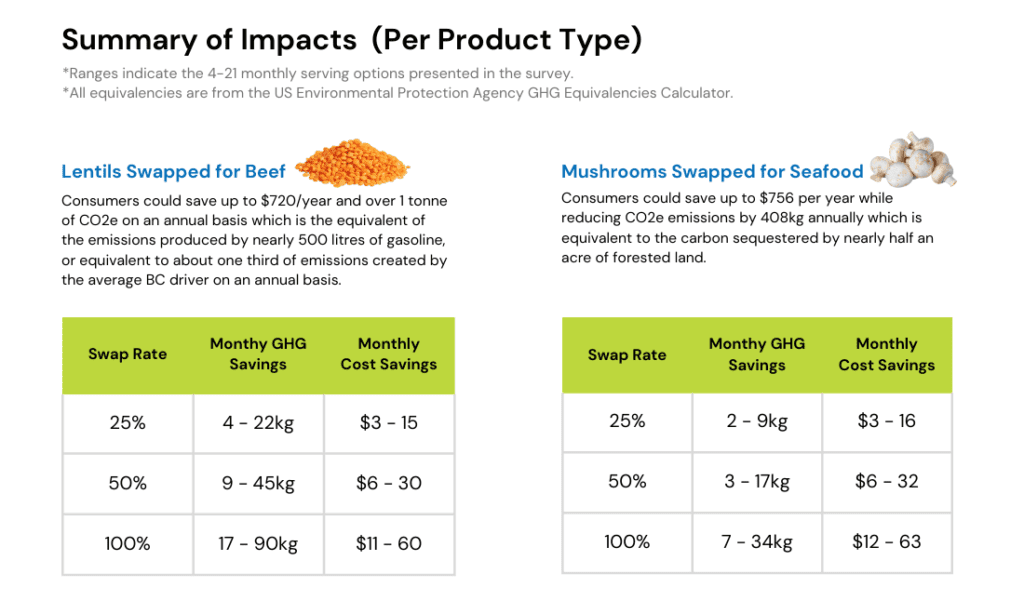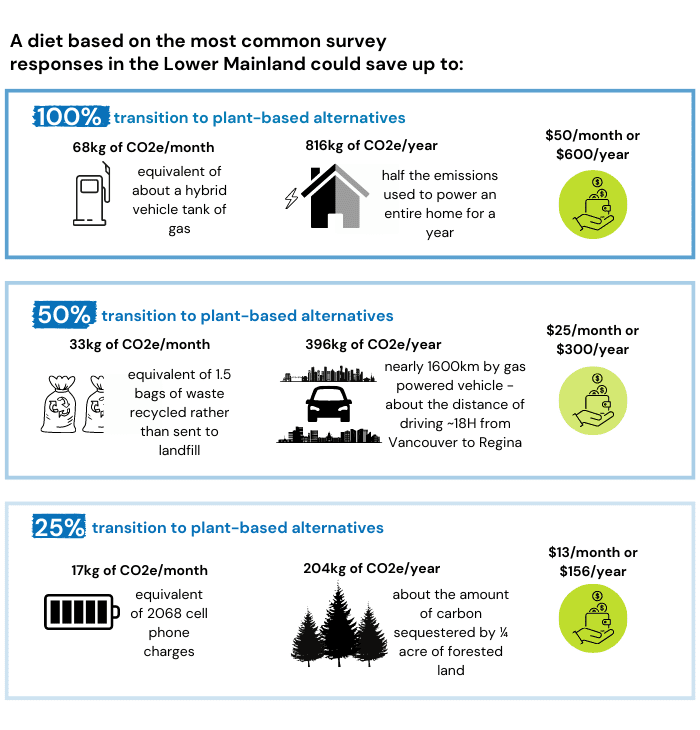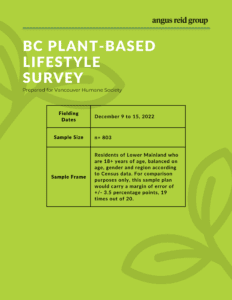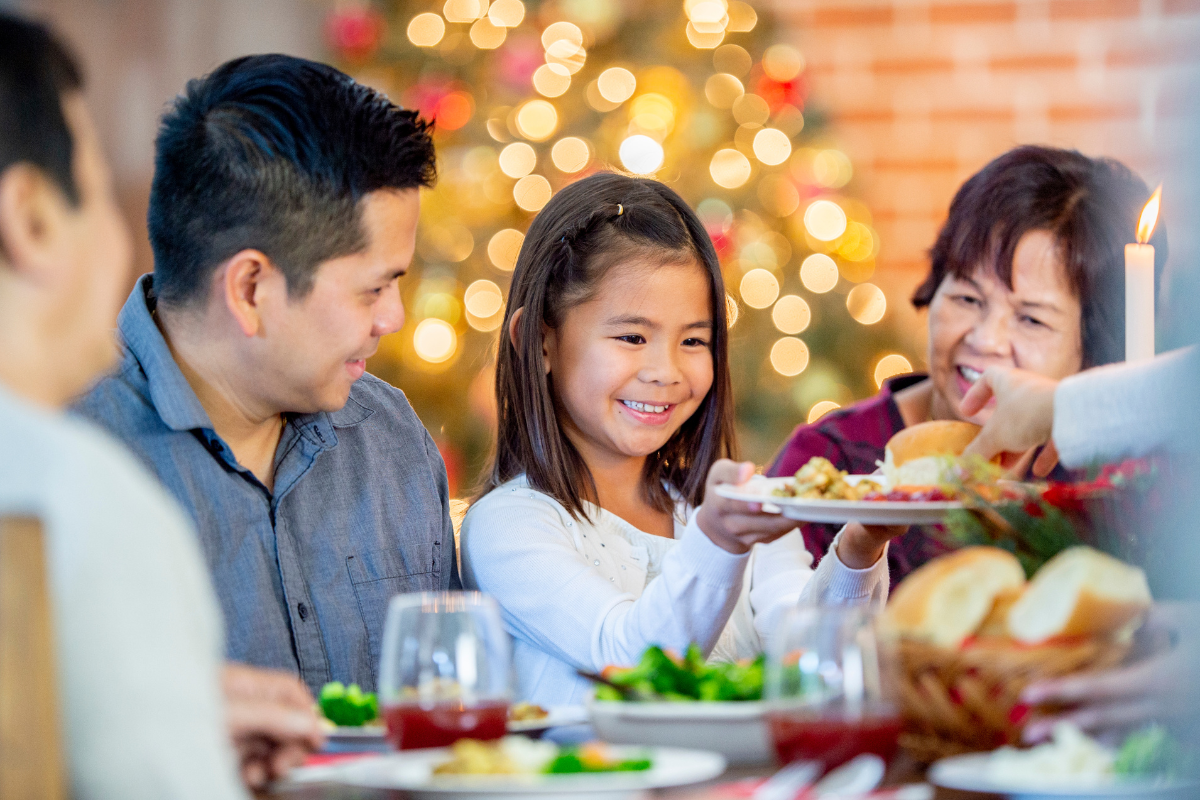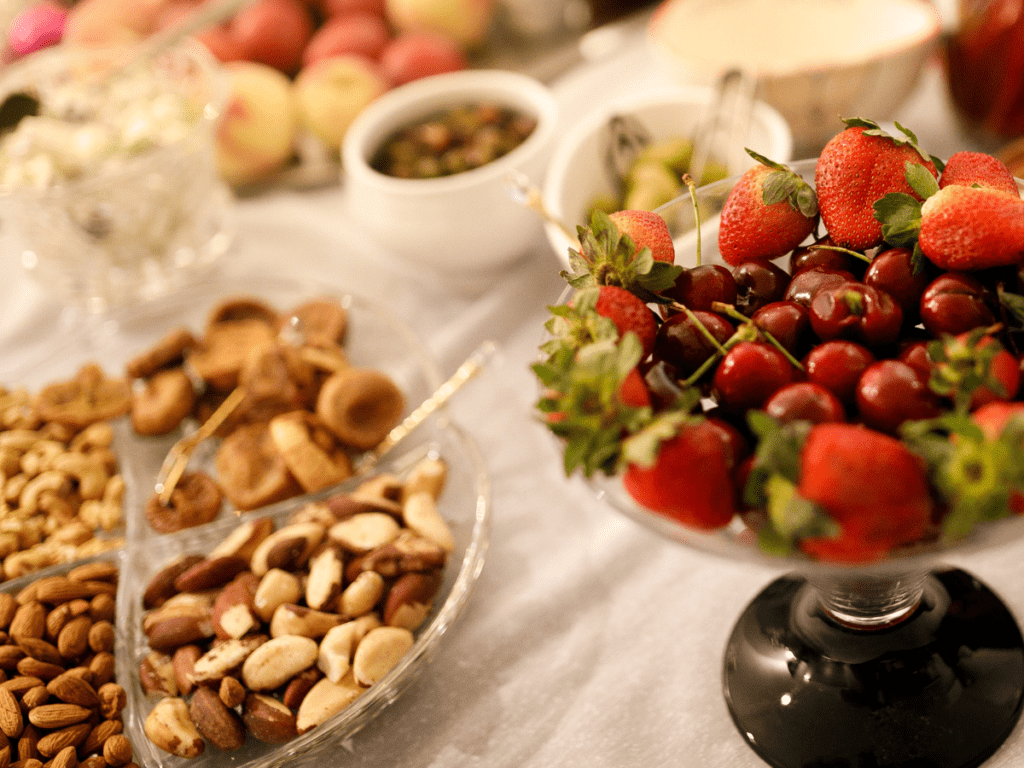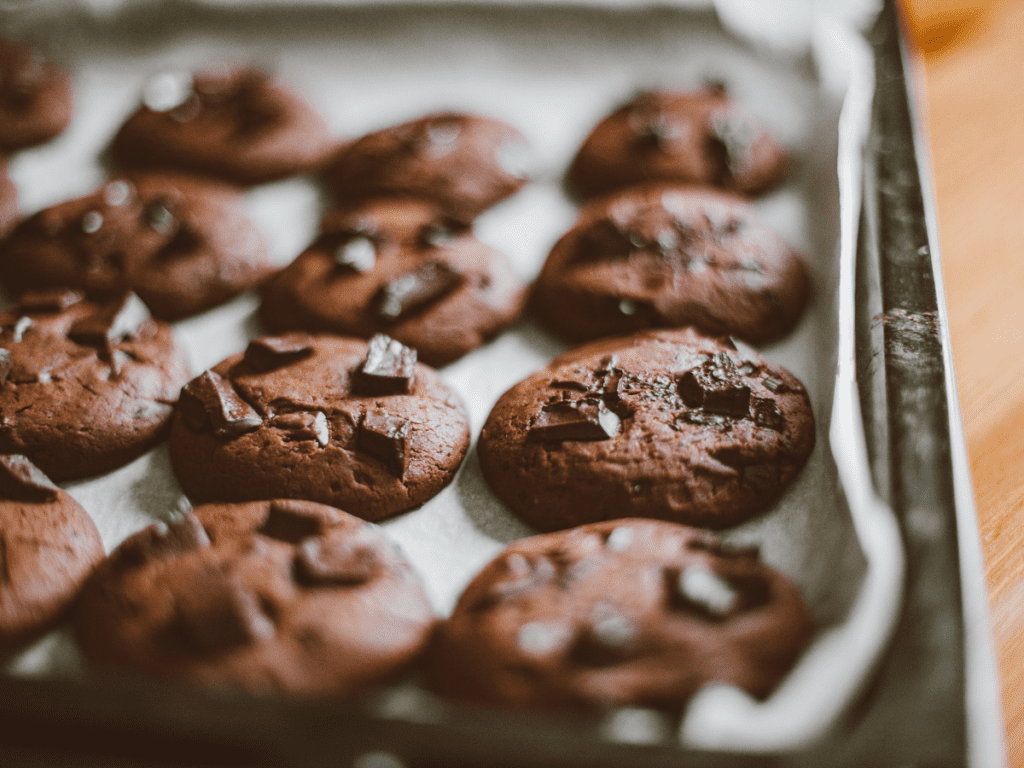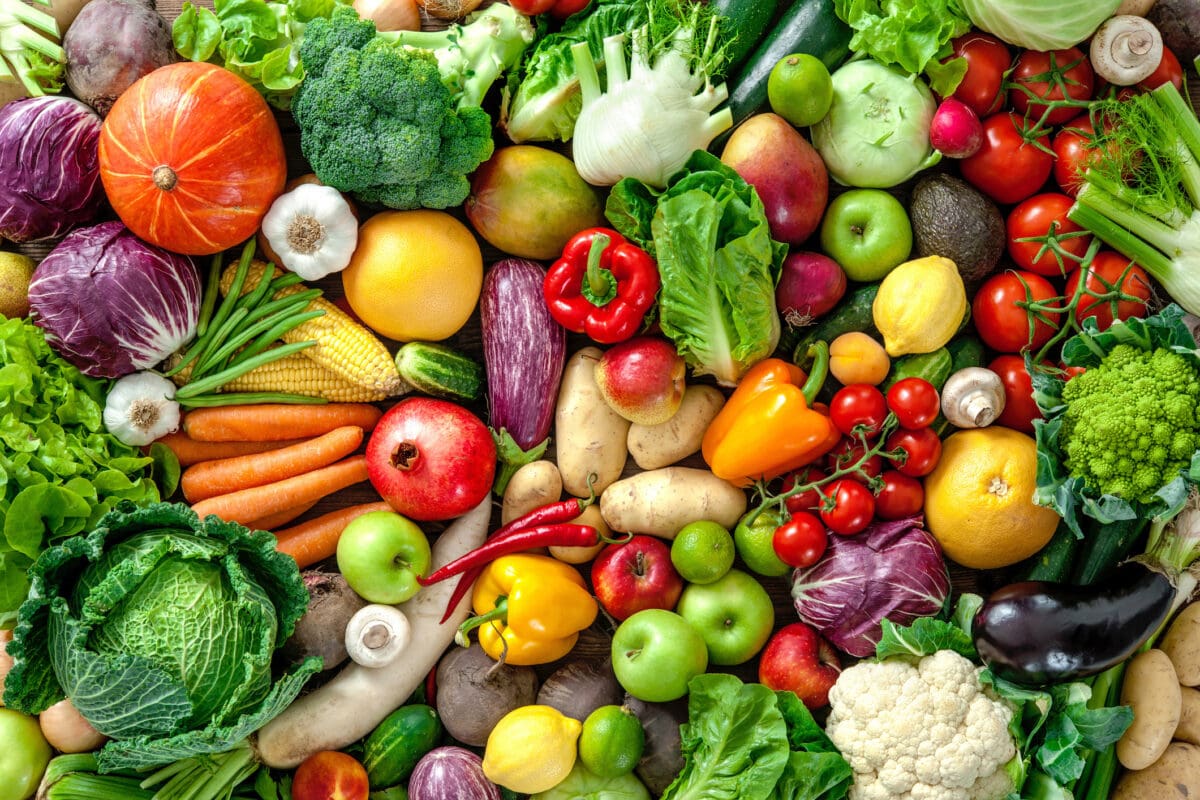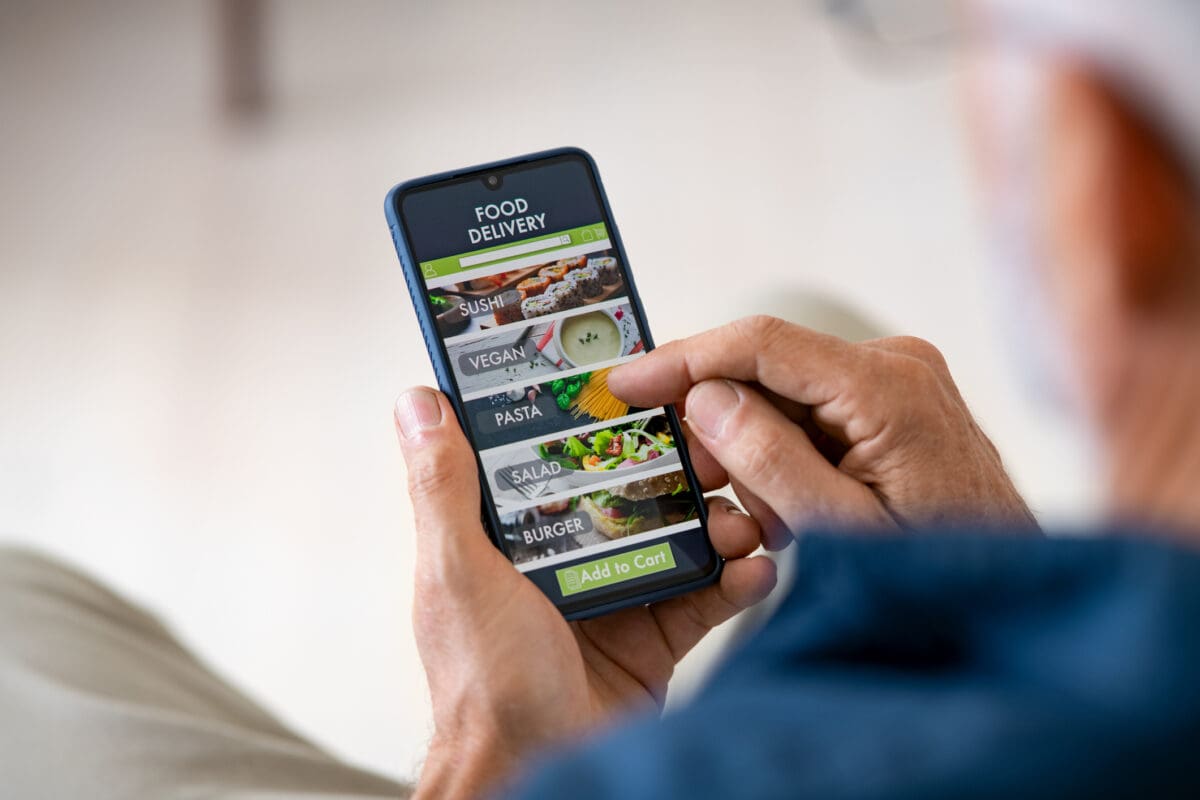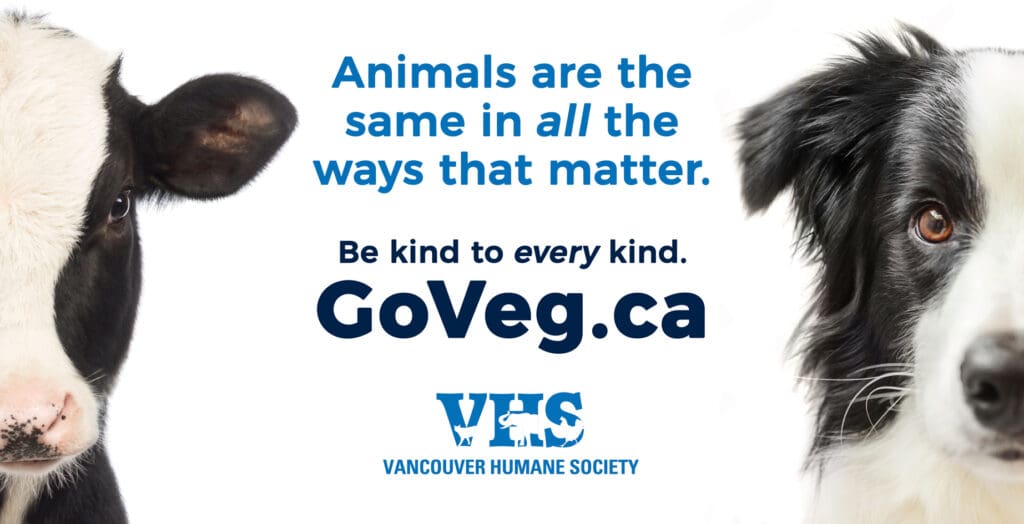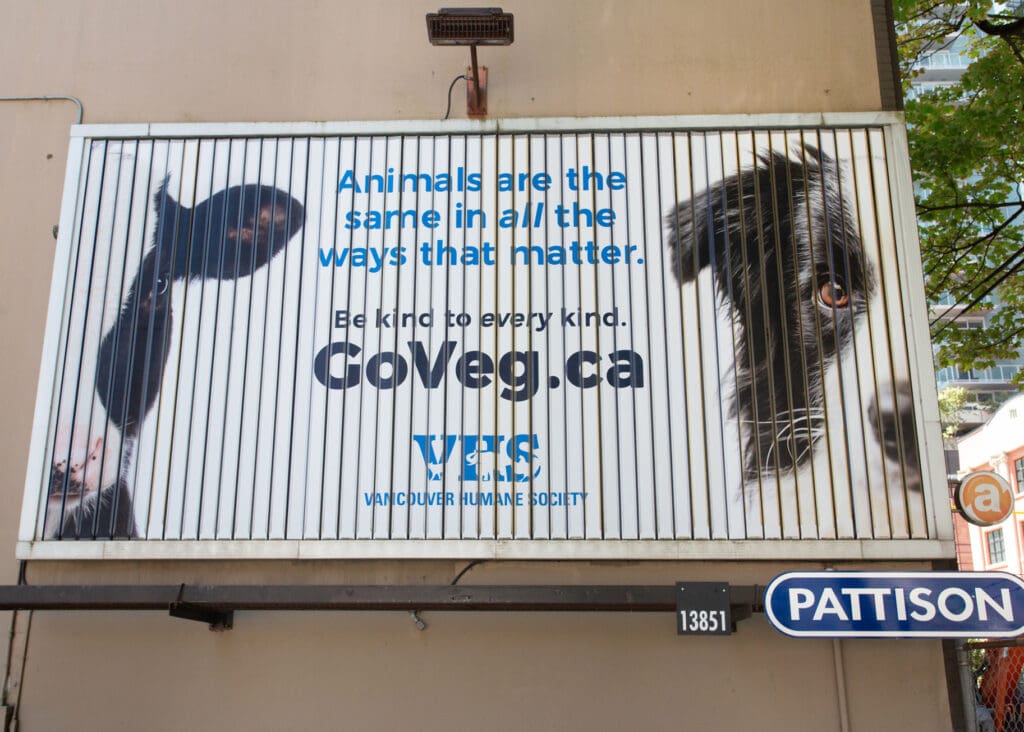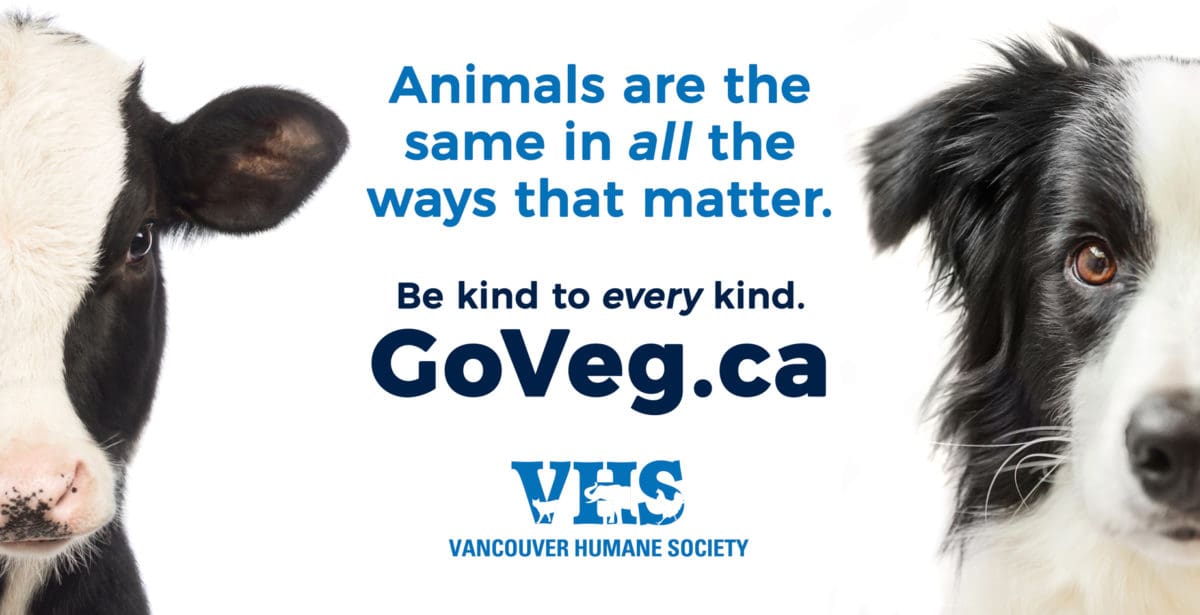It’s the holiday season, and many celebrations at this time of year focus on food!
More and more people are adding compassion to their festive meals by opting out of animal-based products and ingredients. In this special episode of The Informed Animal Ally, the Vancouver Humane Society’s Amy Morris and Chantelle Archambault discuss their experiences adapting to the holidays after going vegan.
Note: This written discussion has been edited for length.
Preparing for a plant-based holiday
Chantelle: It’s the holiday season, so we wanted to talk about our experience adapting to the holidays after going vegan and maybe inspire others who are thinking of trying a plant-based holiday for the first time, or who are thinking of new plant-based ways of celebrating.
So let’s jump right in. How was your experience adapting to the holidays after going vegan?
Amy: Making my own food or if I have a holiday where I’m just spending it with vegan friends, that’s easy.
But the times that I first encountered holidays with extended family were pretty tricky to navigate. I really had to think through what my strategy was going to be in advance.
The first thing that I did was to set some clear expectations with my close family to say, it’s important for me to have food available for me at this event, and I really want to appreciate that food. So there’s different ways to do that. Essentially, I’m happy to go to the grocery store and buy things for myself, and this was at someone else’s house, so prepare my own food either before and bring it over or, or if there’s space for me to prepare it at the house.
And by doing that, I think I really set myself up for success because I wasn’t depending on others to accommodate my needs.
It also created the space for them to offer up to prepare some dishes that I could eat.
I’ve seen that play out a few different ways. At one holiday celebration, there was a meal that got provided for me, and it was very interesting because essentially I was expected to eat it and take it home with me because that’s how much my family was not interested in even thinking about a plant-based diet.
I think that speaks to the adaptation that can be required, but also the importance of opening it up to conversation.
Sharing the love
Chantelle: Absolutely.
I was actually really fortunate. I think my experience is a little bit different because I have not spent any holidays with extended family since going vegan, so it’s been pretty insular for me. My immediate family is very accommodating, which I’m really lucky about.
I think the best part for me has been, bringing my baked goods and being able to share them. People were very welcoming about it, even if they were hesitant at first.
Amy: I love that. I definitely have done that as well.
With another family that I spent holidays with, the approach that I took was, I will make dishes to share. I brought all the ingredients over, or in some cases, prepared some things in advance, so there were two types of stuffing.
And what was nice about that is everyone was sort of motivated by the idea of there being like novelty and different things to try, and so everyone was willing to try the dishes that I brought.
I think that was a good testament to the fact that plant-based eating can be a transition for people. Making dishes that you know, you know are going to be tasty and sharing that is a really nice way to have people start to shift the way they think about what plant-based food tastes like.
Plant-based holiday favourites
Chantelle: Yeah, absolutely. And plant-based stuffing is delicious.
Amy: Oh yes. In terms of what I put into it, I like to use a good bread, like a vegan sourdough or whole grain, then mix that up with sweet potato and some potato and carrots, lots of herbs and rosemary, you can put cranberries in it and things like that.
It almost comes out like a roast.
Chantelle: That sounds so lovely. It has that holiday feel and it speaks to how much our celebrations tend to revolve around food and how much this is an opportunity to share our own plant-based recipes with others who are vegan and are also not vegan and thinking of adding more plant-based foods into their diets.
What’s your favorite plant-based holiday treat?
Amy: I’ve experimented so much with a lot of different things. I think the foods that I have a lot of fun making are things that maybe you would traditionally put dairy in.
Making something like a pumpkin pie is so much tastier than even a store-bought one that would maybe have dairy, and serving it with coconut whipped cream made with a whipped cream dispenser. The novelty of the experience as well of having really fresh coconut whipped cream makes the pumpkin pie that much more delicious.
Chantelle: That sounds fantastic. Coconut whipped cream is also amazing.
Amy: How about yourself?
Chantelle: I really liked adapting my childhood recipes to be plant-based.
When I was younger, we used to make Sweet Marie bars, which are rice crisp cereal, peanut butter, brown sugar, corn syrup, and I’ve now replaced the butter with vegan margarine and put a plant-based chocolate on top. And that is so delicious.
I also make chocolate coconut macaroons. They’re so good.
For me it’s about finding those nostalgic flavors, and adapting them has been actually super easy. I wrote an article for our PlantUniversity platform about replacing animal-based ingredients with plant-based ingredients in a way that is very simple and sustainable.
Tips for a first-time vegan holiday
Amy: What advice would you give to someone having their first vegan holiday?
Chantelle: I would say find plant-based versions of the foods you already love.
There are more and more products available to find those plant-based versions of foods you love.
If you’re cooking homemade, it’s so much easier. So for instance, that stuffing you made sounds incredible. You can make roast veggies. There’s so many versions of a seitan roast online that you can find and incorporate those nostalgic flavors.
I don’t feel like I’m missing out on anything. I think the best part is that you can also celebrate what you’re gaining; you’re adding all this love and care and compassion into your meal.
What advice would you give?
Amy: I think there’s so much that gets complicated around holidays. I know that when we talk about holiday, it looks very different for every person. You might be spending it alone. You might be spending it with a huge group of people.
I would say overall, be kind to yourself, set reasonable expectations so that you don’t get stressed out or frustrated.
Focus on what experience you want to have. If you want to be spending time making food and en enjoying making food, do that. And you know, whether it’s you eating it or you sharing it, have it be that the experience itself is part of the joy. Maybe trying a new recipe or adapting one.
On the other hand, if it’s stressful to try to think about all of that, and maybe even like, you know, you feel you’re missing some of the dishes that you’re going to be surrounded by, find some kind of treat or something like that, that makes you feel good. That way you can still have that feeling of celebration in your own way.
